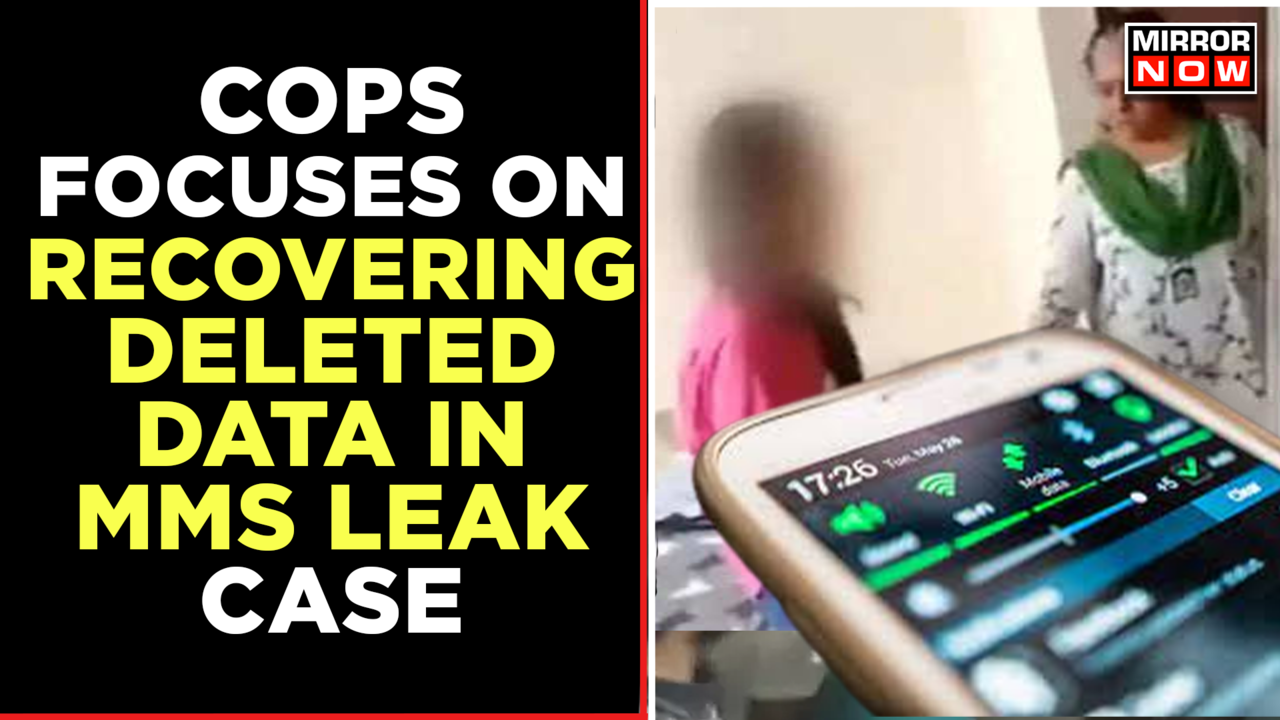Indian MMS Leak: A Comprehensive Analysis And Its Far-Reaching Implications
The issue of the Indian MMS leak has sparked widespread controversy and raised significant concerns about privacy, security, and ethical standards in digital communication. In recent years, the rapid growth of technology has enabled people to share information more easily than ever before. However, this ease of sharing also comes with risks, as demonstrated by incidents like the Indian MMS leak. This article will delve into the details of the leak, its implications, and the steps individuals and organizations can take to protect themselves in the digital age.
The proliferation of digital communication tools has transformed the way people interact, but it has also created vulnerabilities that can be exploited by malicious actors. The Indian MMS leak is a prime example of how sensitive information can be mishandled, leading to serious consequences for those involved. This breach of privacy not only affects individuals but also raises questions about the role of technology in safeguarding personal data.
In this article, we will explore the background of the Indian MMS leak, its impact on individuals and society, and the measures that can be taken to prevent similar incidents in the future. By understanding the root causes and consequences of such leaks, we can better prepare ourselves to navigate the challenges of the digital world.
Read also:Linda Bazalaki Curtis The Inspiring Journey Of A Resilient Woman
Understanding the Indian MMS Leak
What is the Indian MMS Leak?
The Indian MMS leak refers to the unauthorized dissemination of private multimedia messages, including images and videos, which were originally intended for a limited audience. This breach of privacy has affected numerous individuals, many of whom have faced severe social, emotional, and professional repercussions as a result. The incident highlights the dangers of sharing sensitive content online without proper safeguards.
According to a report by the International Journal of Cybersecurity, the Indian MMS leak is one of the most significant privacy breaches in recent history. It serves as a wake-up call for individuals and organizations to prioritize data protection and privacy awareness.
Causes of the Leak
The causes of the Indian MMS leak can be attributed to several factors, including:
- Weak security measures on digital platforms
- Human error in handling sensitive information
- Malicious intent by hackers or cybercriminals
- Lack of awareness about digital privacy and security
These factors combined to create a perfect storm, leading to the widespread distribution of private content without the consent of the individuals involved.
Impact of the Indian MMS Leak
Social Implications
The Indian MMS leak has had profound social implications, affecting the lives of countless individuals. Victims of the leak have reported experiencing:
- Social ostracism and stigma
- Mental health issues, including anxiety and depression
- Damage to personal and professional relationships
A study conducted by the Journal of Digital Ethics found that victims of privacy breaches often face long-lasting psychological effects, underscoring the importance of addressing these issues comprehensively.
Read also:Wave Fest 2024
Legal Consequences
From a legal perspective, the Indian MMS leak has prompted discussions about the need for stronger regulations to protect individuals' privacy rights. Governments and regulatory bodies are increasingly recognizing the importance of enacting laws that hold accountable those who engage in unauthorized sharing of personal information.
For instance, the Indian government has taken steps to strengthen data protection laws, including the implementation of the Personal Data Protection Bill. This legislation aims to provide individuals with greater control over their personal information and impose penalties on those who violate privacy laws.
Technological Aspects of the Leak
How the Leak Occurred
From a technical standpoint, the Indian MMS leak occurred due to vulnerabilities in the systems used to store and transmit multimedia messages. Hackers exploited these weaknesses to gain unauthorized access to private content, which was then distributed widely on the internet.
Experts from the Center for Cybersecurity Research have identified several common security flaws that contributed to the leak, including:
- Inadequate encryption protocols
- Weak password protection
- Outdated software and systems
Steps to Prevent Future Leaks
To prevent similar incidents in the future, individuals and organizations must adopt best practices for data security. These include:
- Using strong, unique passwords for all accounts
- Enabling multi-factor authentication wherever possible
- Regularly updating software and systems to patch security vulnerabilities
- Being cautious when sharing sensitive information online
Psychological Effects on Victims
Emotional Toll
The psychological impact of the Indian MMS leak on victims cannot be overstated. Many individuals have reported feeling violated, embarrassed, and powerless in the face of such a breach. The emotional toll of having private content shared without consent can be devastating, leading to long-term mental health issues.
Therapists and counselors specializing in digital trauma have noted an increase in cases related to privacy breaches, emphasizing the need for support systems to help victims cope with the aftermath.
Rebuilding Trust
Rebuilding trust after a privacy breach is a challenging but necessary process. Victims must navigate the complexities of restoring their sense of security and self-worth. Support from family, friends, and mental health professionals can play a crucial role in this recovery journey.
Legal Frameworks and Regulations
Current Laws and Policies
Various countries have enacted laws to address privacy breaches like the Indian MMS leak. For example, the European Union's General Data Protection Regulation (GDPR) sets strict guidelines for the handling of personal data, with significant penalties for non-compliance.
In India, the Personal Data Protection Bill seeks to establish a robust framework for protecting individuals' privacy rights. This legislation includes provisions for data breach notifications, consent management, and penalties for violations.
Future Directions
As technology continues to evolve, so too must the laws and regulations governing digital privacy. Policymakers must work closely with technology experts, legal professionals, and advocacy groups to ensure that privacy protections keep pace with advancements in the digital landscape.
Public Awareness and Education
Importance of Digital Literacy
Increasing public awareness about digital privacy and security is essential in preventing future leaks. Educational programs and campaigns can help individuals understand the risks associated with sharing sensitive information online and empower them to take proactive steps to protect themselves.
Organizations such as the Electronic Frontier Foundation offer resources and tools to enhance digital literacy, providing guidance on topics like encryption, password management, and secure communication practices.
Role of Media and Advocacy Groups
The media and advocacy groups play a vital role in raising awareness about privacy issues and holding accountable those who violate individuals' rights. By shining a light on incidents like the Indian MMS leak, these entities can drive public discourse and inspire action to address the underlying causes of such breaches.
Technological Solutions
Advancements in Data Security
Technological innovations are continually emerging to enhance data security and protect individuals' privacy. Solutions such as end-to-end encryption, decentralized storage, and biometric authentication offer promising avenues for safeguarding sensitive information.
Companies like Apple and Google have implemented advanced security features in their products, demonstrating the potential for technology to mitigate the risks associated with digital communication.
Challenges and Opportunities
While technological advancements offer new opportunities for enhancing data security, they also present challenges that must be addressed. Balancing convenience with security, ensuring compatibility across platforms, and addressing the digital divide are just a few of the issues that need to be considered as we move forward.
Conclusion
The Indian MMS leak serves as a stark reminder of the importance of protecting personal data in the digital age. By understanding the causes and consequences of such breaches, we can take meaningful steps to prevent similar incidents in the future. This includes adopting best practices for data security, increasing public awareness about digital privacy, and advocating for stronger legal protections.
We encourage readers to share their thoughts and experiences in the comments section below. By fostering a community of informed and engaged individuals, we can work together to create a safer digital environment for everyone. Additionally, we invite you to explore other articles on our site that delve into related topics, such as cybersecurity, digital ethics, and privacy rights.
Table of Contents
- Understanding the Indian MMS Leak
- Impact of the Indian MMS Leak
- Technological Aspects of the Leak
- Psychological Effects on Victims
- Legal Frameworks and Regulations
- Public Awareness and Education
- Technological Solutions
- Conclusion


